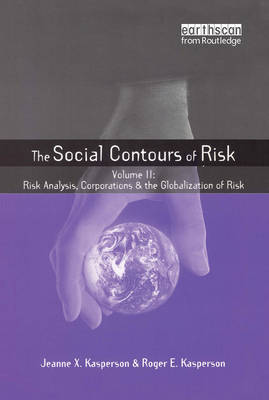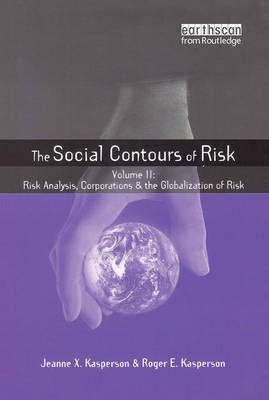
- Retrait gratuit dans votre magasin Club
- 7.000.000 titres dans notre catalogue
- Payer en toute sécurité
- Toujours un magasin près de chez vous
- Retrait gratuit dans votre magasin Club
- 7.000.0000 titres dans notre catalogue
- Payer en toute sécurité
- Toujours un magasin près de chez vous
256,95 €
+ 513 points
Format
Description
We live in a 'risk society' where the identification, distribution and management of risks, from new technology, environmental factors or other sources are crucial to our individual and social existence. In The Social Contours of Risk, Volumes 1 and 2, two of the world's leading and most influential analysts of the social dimensions of risk bring together their most important contributions to this fundamental and wide-ranging field. Volume II centres on the analysis and management of risk in society, in international business and multinationals, and globally. The 'acceptability' of risk to an individual depends on the context, whether the larger society or in, for example, a corporate framework. Their work clarifies the structures and processes for managing risks in the private sector and the factors that produce or impede effective decisions. The authors demonstrate that corporate culture is crucial in determining risk management. They analyse the transfer of corporate risk management systems from industrial to developing countries, and how globalization is spreading and creating new kinds of risk - the combination of traditional and modern hazards presented by climate change, technology transfer and economic growth. They describe the new priorities and capacities needed to deal with these enhanced vulnerabilities around the globe.
Spécifications
Parties prenantes
- Auteur(s) :
- Editeur:
Contenu
- Nombre de pages :
- 344
- Langue:
- Anglais
- Collection :
Caractéristiques
- EAN:
- 9781844070725
- Date de parution :
- 01-04-05
- Format:
- Livre relié
- Format numérique:
- Genaaid
- Dimensions :
- 164 mm x 247 mm
- Poids :
- 1347 g

Les avis
Nous publions uniquement les avis qui respectent les conditions requises. Consultez nos conditions pour les avis.






